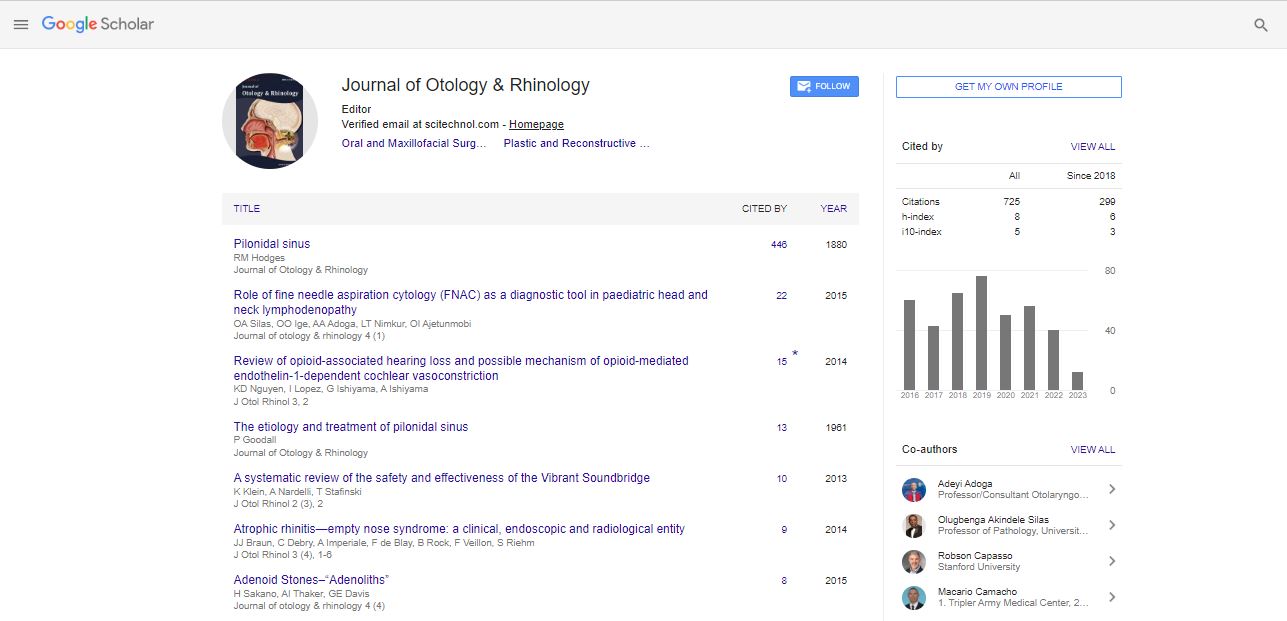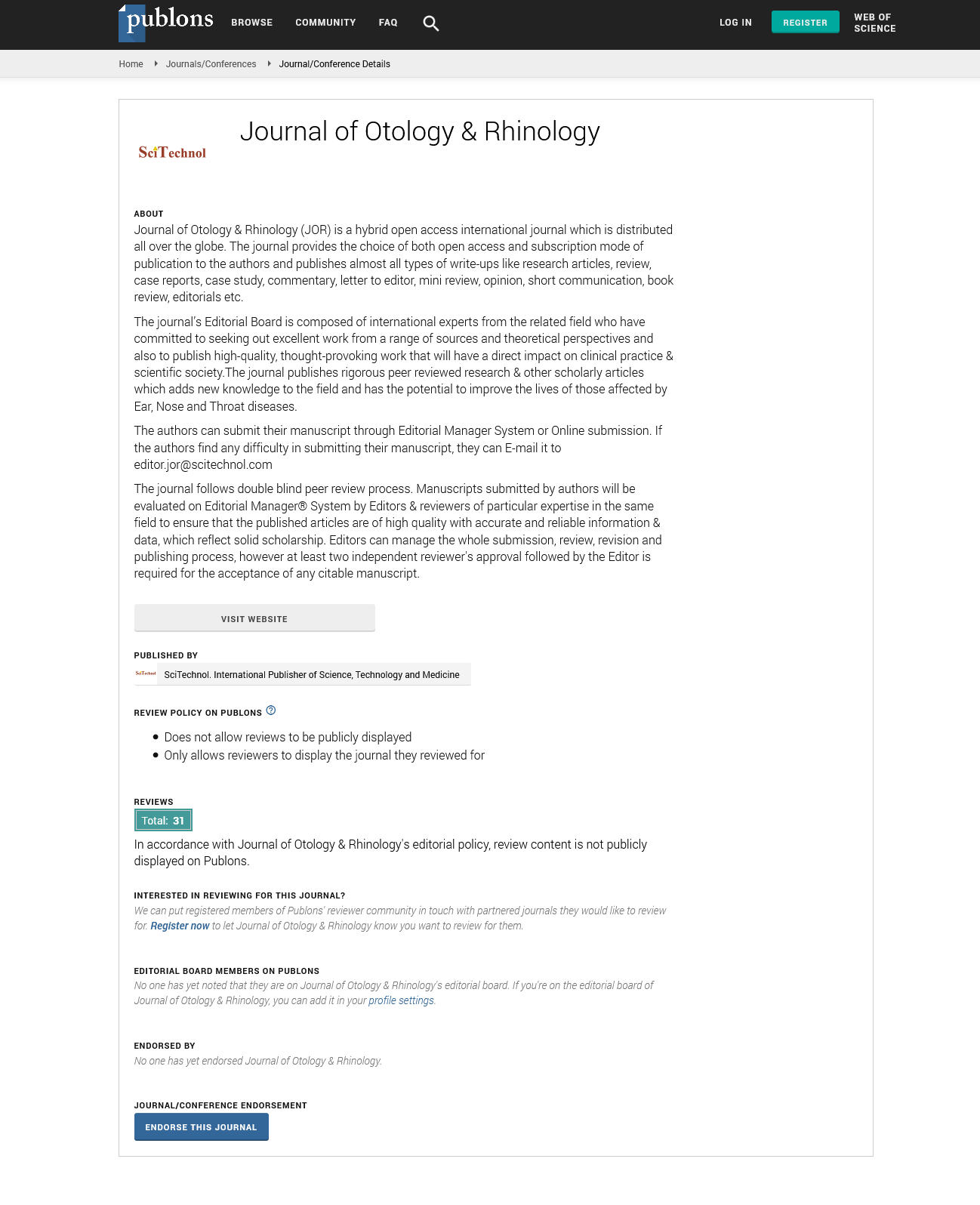The effect of cochlear implantation on nasalance of speech in postlingually hearing-impaired adults
Tamer A Mesallam, Sabah M Hassan, Khalid H Malki, Mohamad Farahat, Manal Bukhari and Thomas Murry
King Saud University, Saudi Arabia
:
Abstract
Objectives: Hypernasality is considered as a prevalent speech abnormality that could significantly contribute to the unintelligibility of the hearing-impaired speakers. The aim of this study was to evaluate the effect of cochlear implantation and the duration of hearing loss on nasalance of speech of a postlingually impaired group of Saudi adult patients. Methods: This retrospective study included 25 postlingually hearing-impaired patients who underwent cochlear implantation and 25 age-matched control subjects. Patients were divided into three groups according to the duration of hearing loss. The nasometric data of the hearing-impaired group were compared with the control group. Also, the preoperative values were compared with the postoperative values 6, 12, and 24 months after surgery. Results: Significant differences were demonstrated between the pre-implantation nasalance scores of the three sub-groups and between the patients and control groups. There were statistically significant differences demonstrated between the pre- and the postimplantation nasalance values for the three groups of patients. Conclusion: Cochlear implantation appears to have significant effects on improving the nasalance of the speech of postlingually hearing-impaired adult patients. However, the degree of improvement might vary according to the duration of hearing loss.
Biography
Tamer A Mesallam is a Professor of Phoniatrics Consultant, Communication and Swallowing Disorders; Supervisor of Reflux Clinics at King Abdulaziz University Hospital and; Research Director of King Khalid University Hospital.
Email: tmesallam@ksu.edu.sa
 Spanish
Spanish  Chinese
Chinese  Russian
Russian  German
German  French
French  Japanese
Japanese  Portuguese
Portuguese  Hindi
Hindi 


